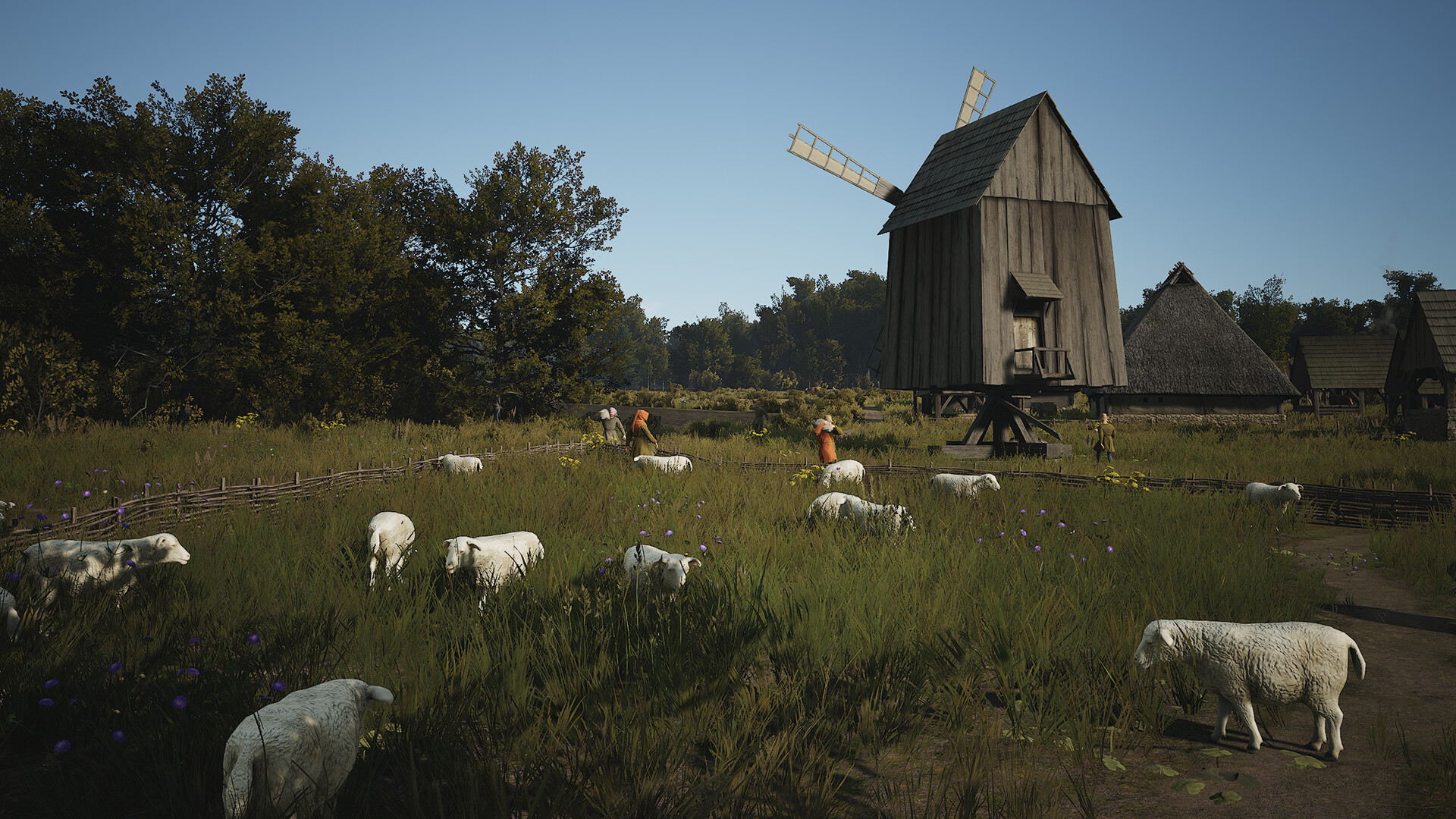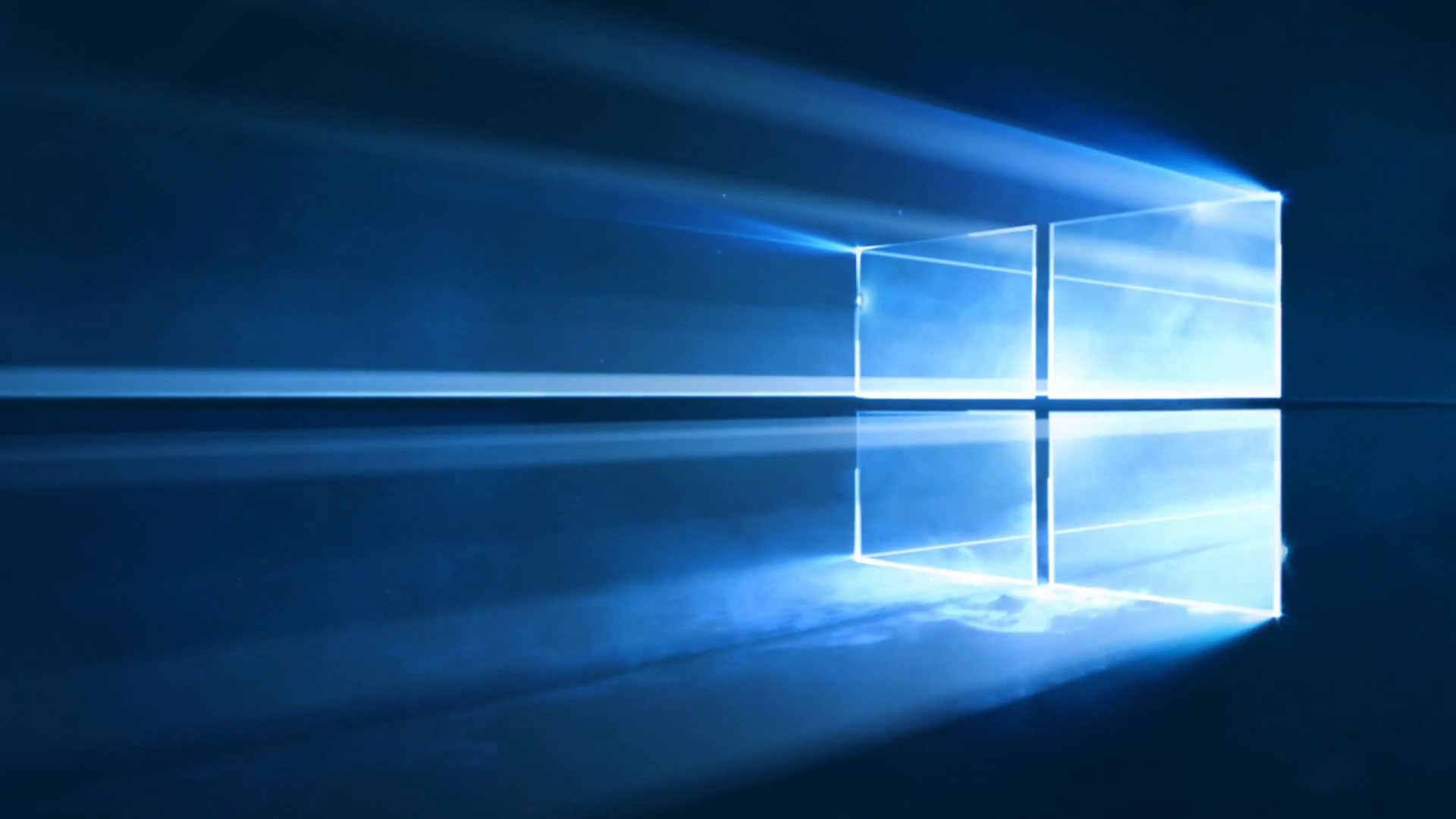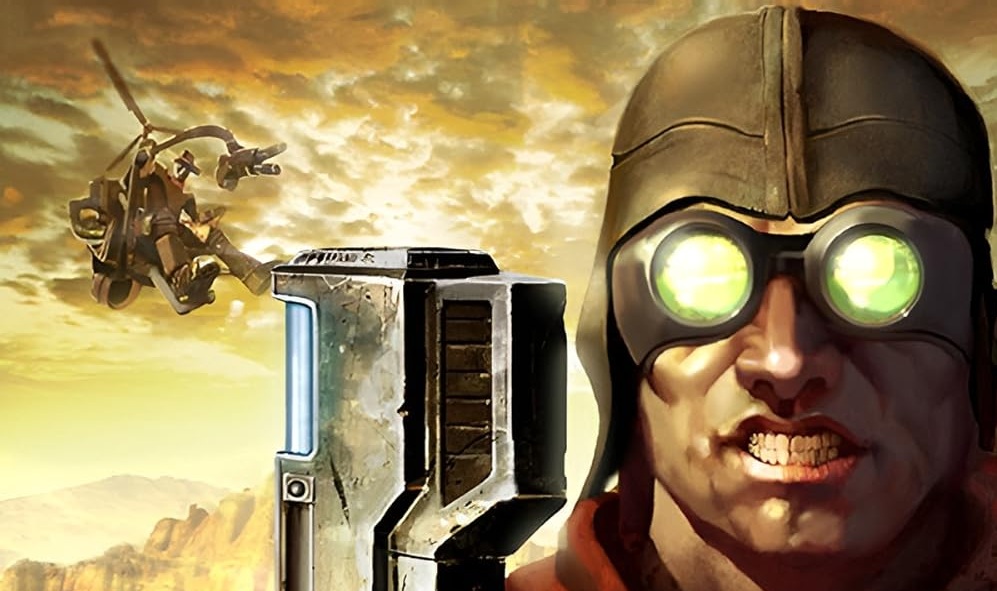Vampire: The Masquerade – Bloodlines 2 review
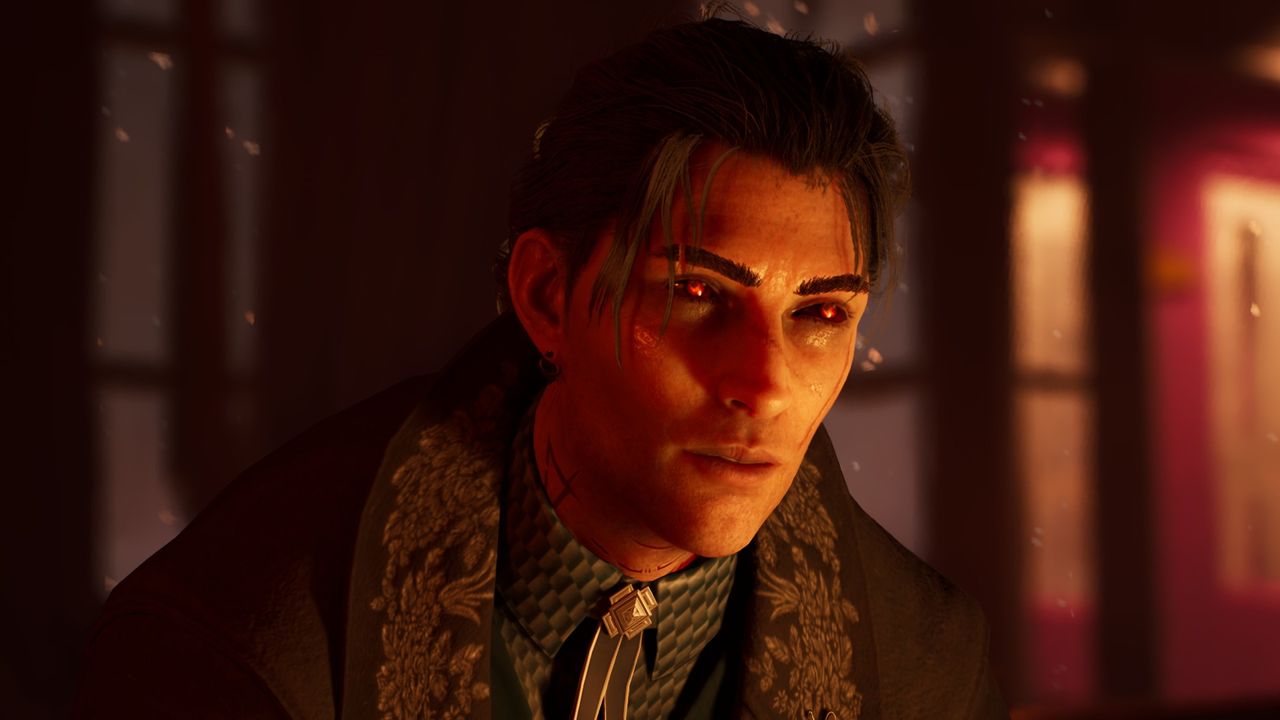
What is it? An undead mystery that's part Anne Rice, part Raymond Chandler.
Release date October 21, 2025
Expect to pay $60/£50
Developer The Chinese Room
Publisher Paradox Interactive
Reviewed on RTX 4090, Intel i9-13900k, 32GB RAM
Steam Deck Unknown
Link Official site
You are Phyre, an elder vampire of prodigious strength and no small amount of fame, forced to sleep for a hundred years. And people have been waiting for your return. You wake up in 21st century Seattle, bound by a curse and weighed down by the expectations of modern bloodsuckers.
Amid all this, you must carve out a place for yourself in this new city, along with an identity, even as you're nudged into deals and alliances, bending and adapting as you try to become what Seattle's nighttime residents need: a big scary vamp who can fix everything. Or break everything.
The story of Vampire: The Masquerade – Bloodlines 2's lost protagonist eerily encapsulates the state of the game itself: a long-awaited sequel with years of hopes and doubts and assumptions bearing down on it; an RPG that has to be an RPG, has to be a sequel, that strains against its bonds.
To RPG or not to RPG
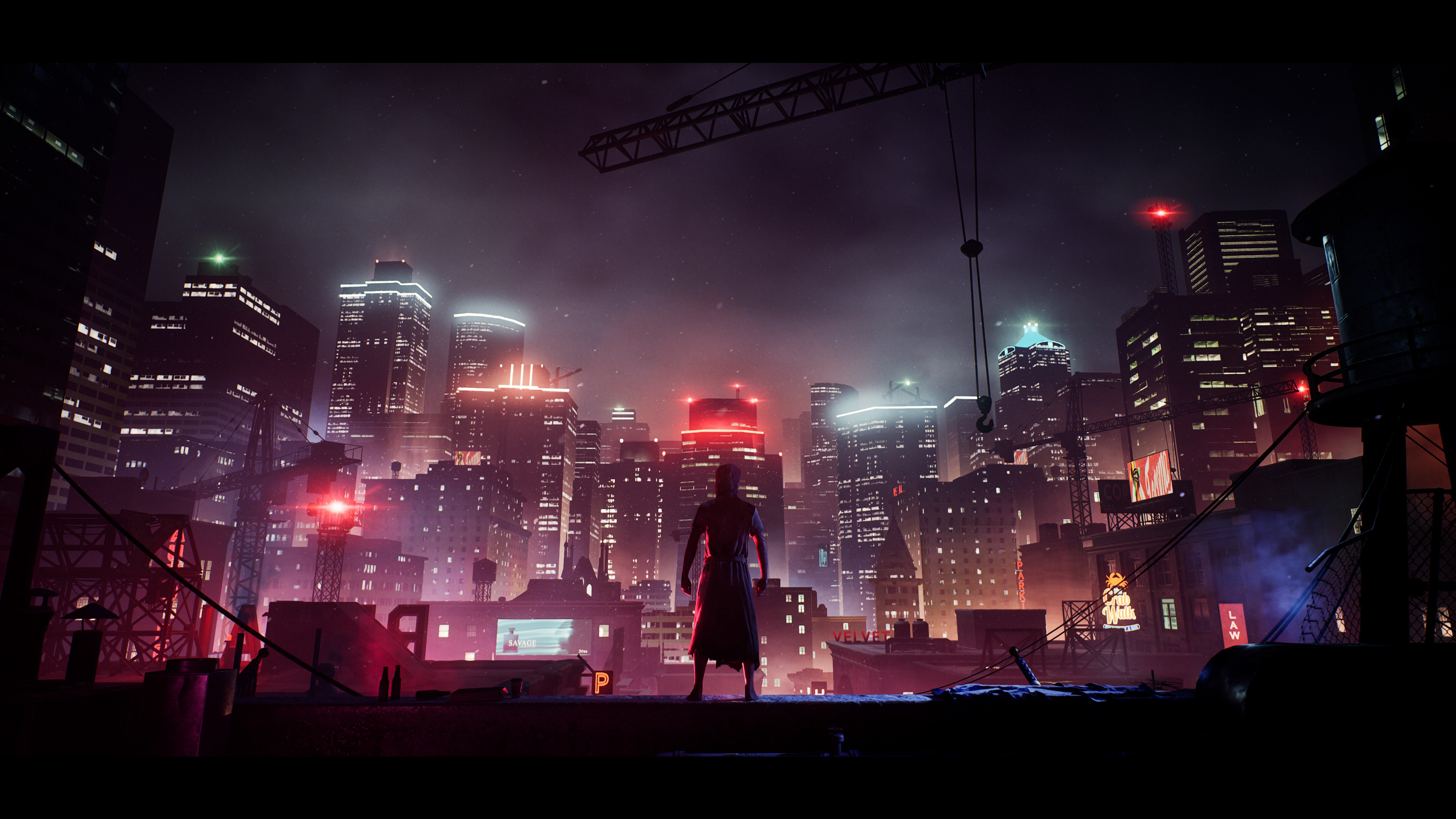
Bloodlines 2 is good, sometimes even great, and it absolutely sated my appetite for a blood-fuelled undead yarn. But it is a sequel in name only, and it never really enthusiastically embraces being an RPG. Given its predecessor's cult status, and the source material, that's bound to be a disappointment for some.
I decided to roll with it. I've been told you can't skip right to the final stage of grief, but after a few hours I had reached acceptance. I'm just so good at processing stuff. 30 hours later, I watched the credits roll with a cosy feeling of satisfaction.
So! What actually is Bloodlines 2? It's a conspiracy-laden mystery that's as Raymond Chandler as it is Anne Rice. You've got a lot of questions in search of answers. What's the deal with the sigil binding you to Seattle? How did you even get here? And why do you have a chatty Malkavian detective in your head?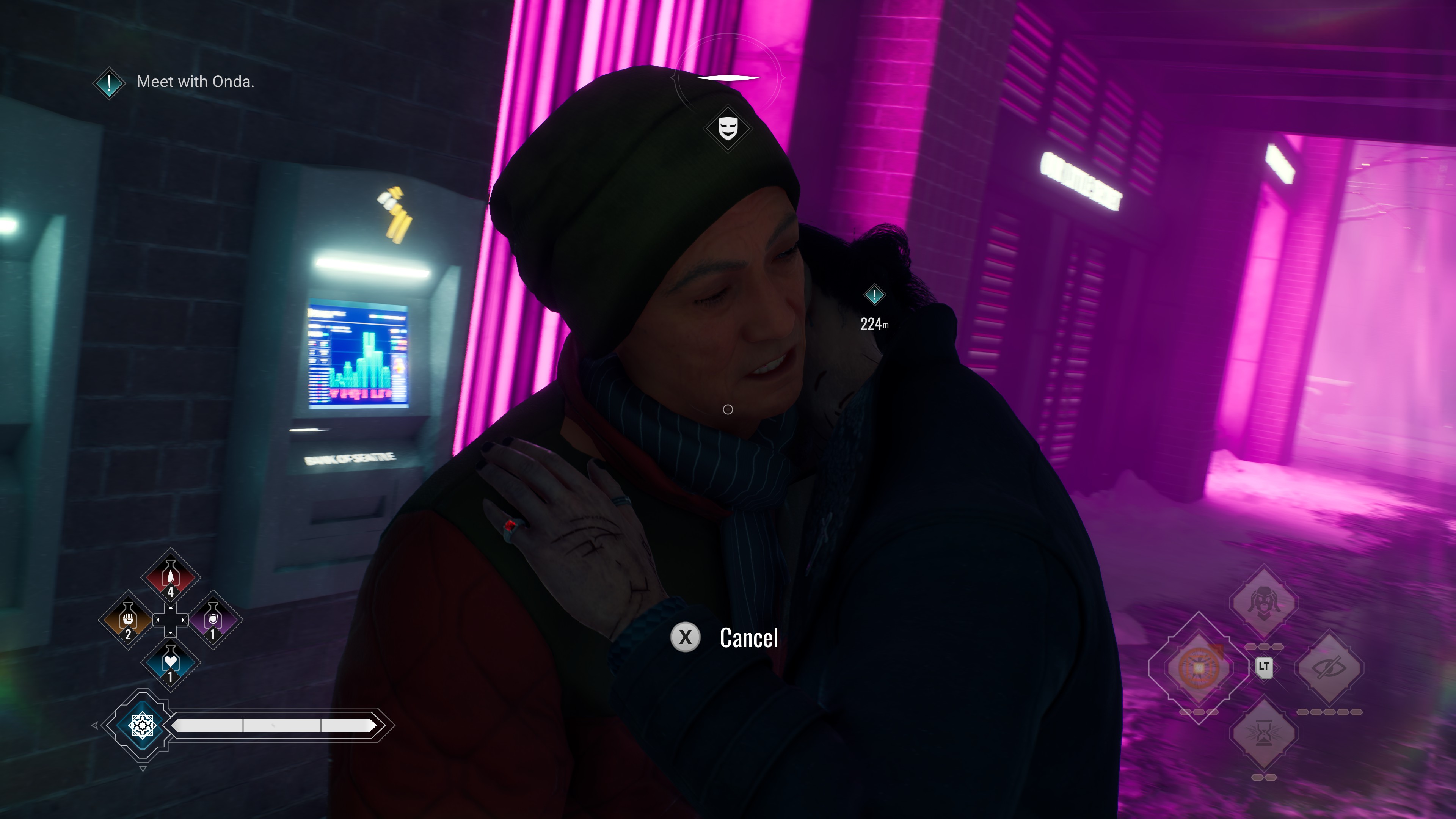
It's a buddy cop deal. Except one cop is an ancient vampire, and the other one is also a vampire, but he's dead, double-dead, and living inside his pal's noggin. And together they're going to clean up Seattle. While also killing a lot of ghouls. Like, so many ghouls. They never learn.
As Phyre, you'll skulk around the city at night, investigating your whole situation, while also doing work for Seattle's court—the undead head honchos. They pretty quickly make you the sheriff, so you also need to split your time between snooping and keeping the peace.
Chatting, rooting around and killing ne'er-do-wells: that's the gig. Your vampiric senses manifest as a kind of detective vision that highlights certain things of import: blood stains, scents, the heartbeats of mortals—that kind of thing. Your crosshair, meanwhile, changes in size to highlight the proximity of important objects, from letters to elixirs that give you health or buffs.
There are some light puzzles, but the conundrums you deal with are primarily social ones, or big picture things, worked out in conversations with vamps, ghouls and Fabien—the voice in your head. In this regard, it's not unlike a Telltale adventure game (you even get the "someone will remember this" style popups), where your relationships and how your actions are perceived by other characters are what drives the story, and your investigation, forwards.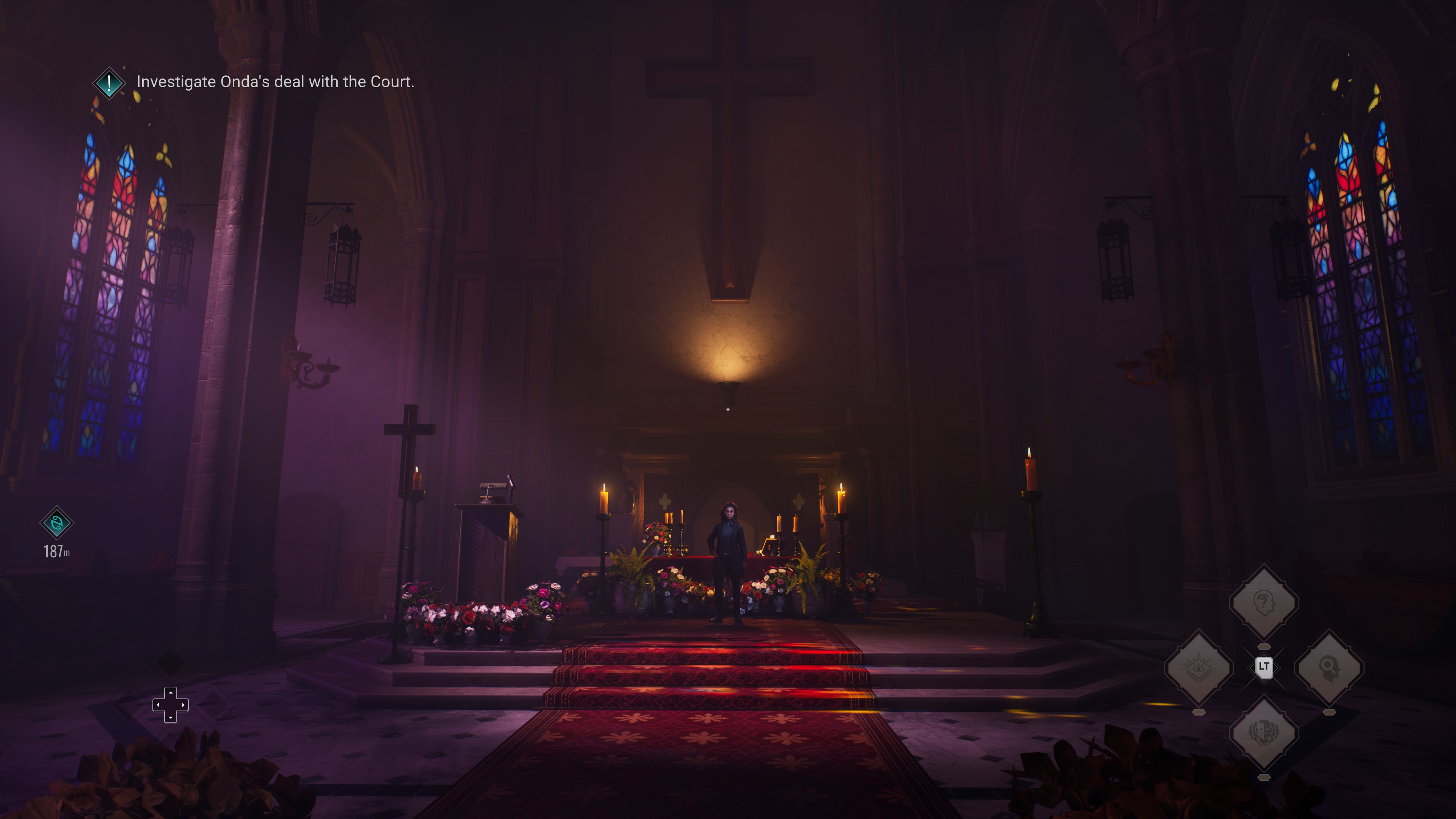
This is where Bloodlines feels like it's most comfortable. Indeed, it's where it excels. Seattle's undead denizens are all deliciously arch, devious and downright dangerous, and each conversation with the court's members becomes an elaborate dance as you try to suck all the information out of them without turning them into an enemy.
In Bloodlines' dialogue and relationship system, it isn't just what you say that matters, but how these words are affected by the context of your previous actions and your whole vibe. If you've been an asshole for the entire game, nobody is going to fall for your honeyed words if you suddenly start trying to play nice.
War of words
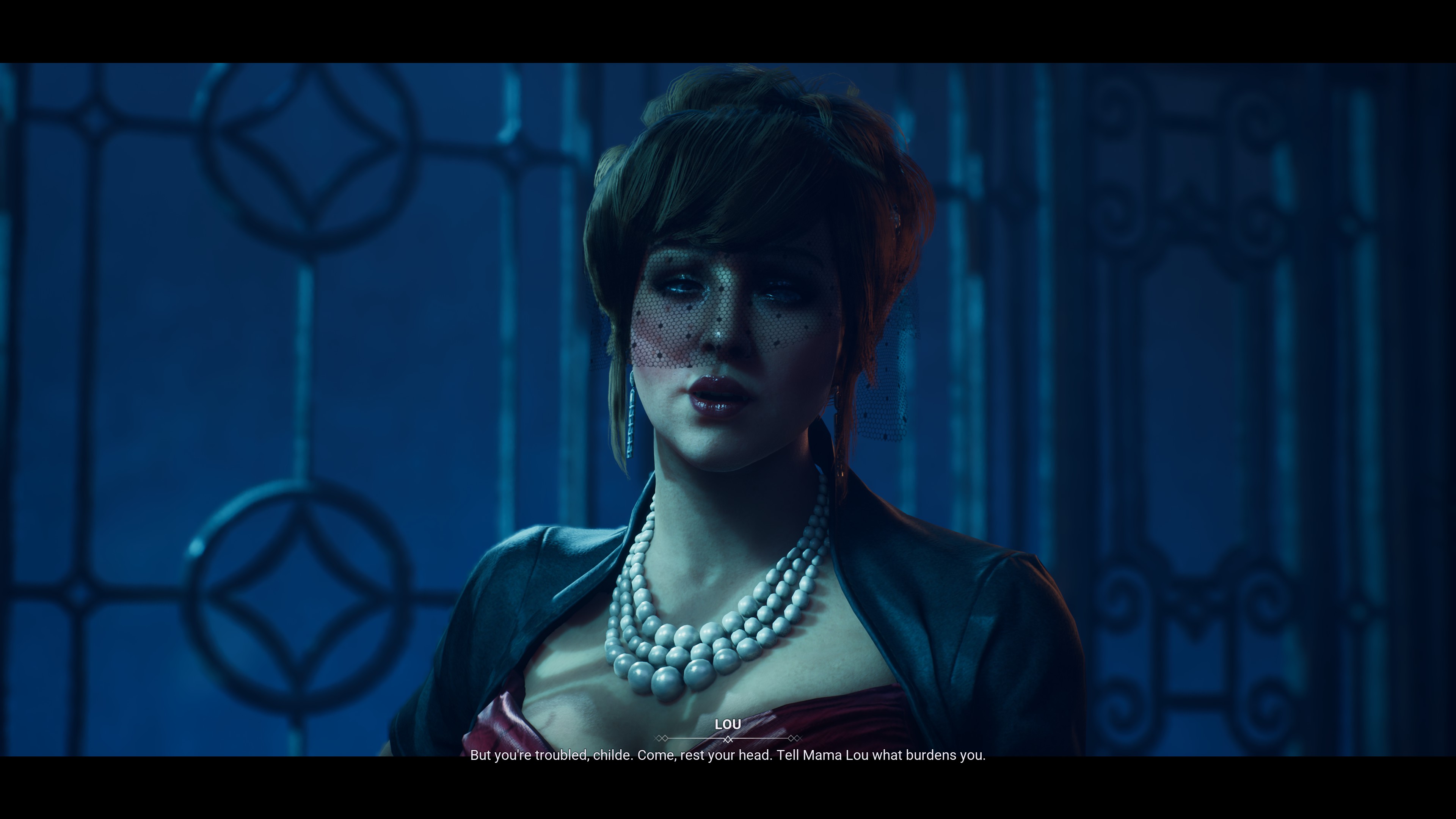
Bloodlines 2 ran reasonably well on my RTX 4090 rig. With everything cranked up and DLSS set to balanced it mostly stayed steady at 60fps. But I'd still expect better performance, especially since it's hardly pushing things in terms of visual fidelity. I also encountered a few crashes, though that's become par for the course with any Unreal Engine game.
When I wasn't chatting, I found myself craving these social moments. Not just because the writing is sharp, playful and full of unspoken threats, but because some of the verbal jousting and heat-of-the-moment decision making gave me the same buzz as solving a puzzle.
One small moment stands out in particular. I'd broken one of the Big Rules, and I had to go back and speak to my boss, Seattle's prince. Fabien warned that I should keep quiet about my transgression. But this was one of the rare times when I didn't follow my helpful guide's advice.
When I realised my prince and their disfigured spy master, Tolly the Nosferatu, knew I wasn't giving them the whole story, I came clean. Because I knew my prince, I knew she was a pragmatist, and I knew she respected me, as a powerful vampire elder. And I was right to do so. Our relationship protected me. Afterwards, Fabien congratulated me, acknowledging that I'd made the right call. I felt very clever.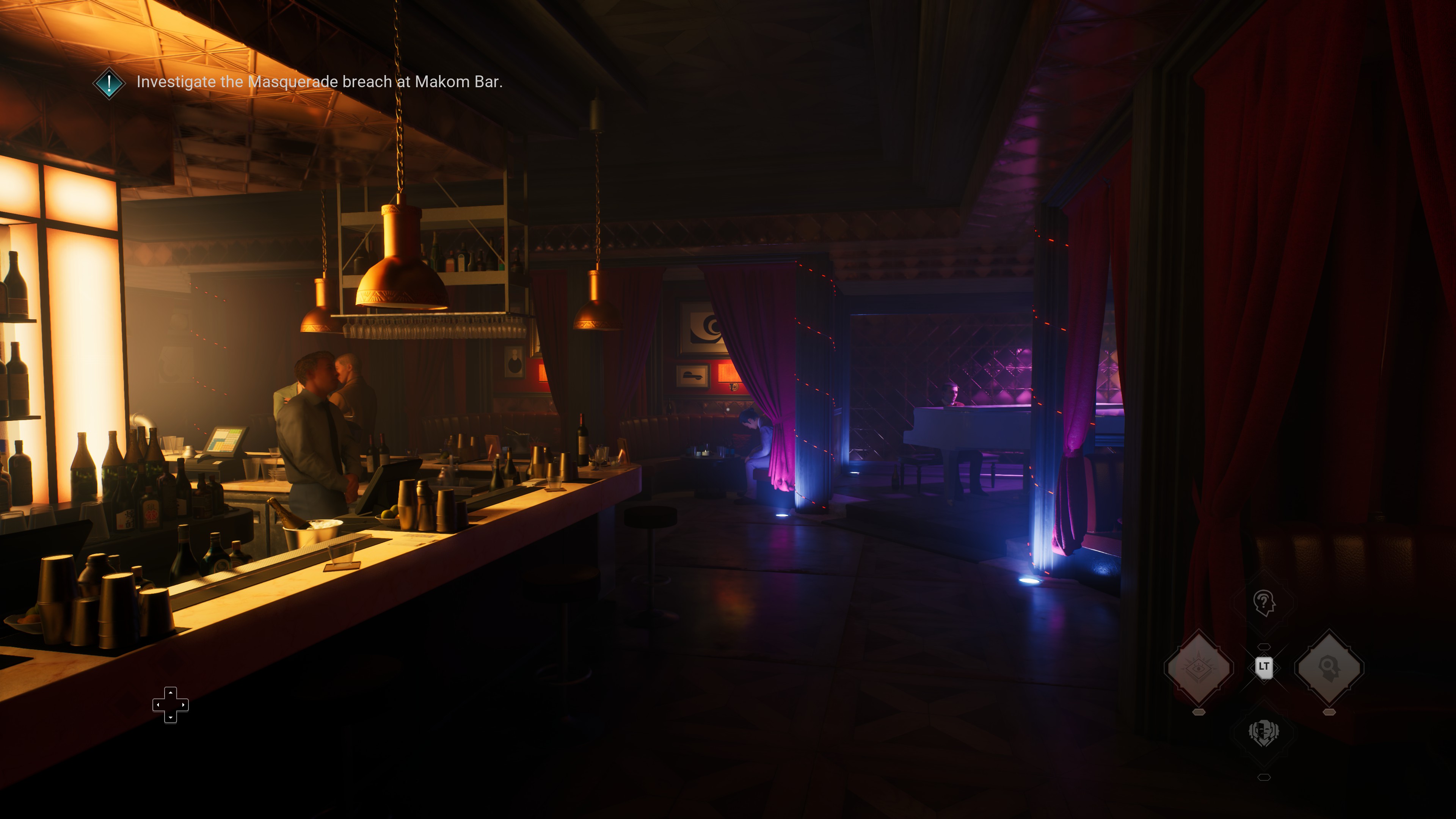
There's only really one thing missing from the chatty, investigative side of Bloodlines 2, but it's a big one: there just aren't many RPG systems propping it up. For instance, your background, which you lay the foundation for early on and then keep adding bricks, rarely plays a role. I spotted a few references, and got a couple of unique dialogue options, but that was it.
Outside of combat, then, there's not much that separates a Banu Haqim vampire from a Tremere vampire. Whether your clan's known for a ruthless application of justice or an obsession with blood magic, you'll mostly see exactly the same things.
Now, this doesn't stop you from going in hard with the roleplaying. I tended to pick options that made sense for a vampire who takes their role as sheriff very seriously, like a member of the Banu Haqim would, but those options would still be there no matter what clan you picked.
Beyond your detective vision, there's also a lack of non-combat vampiric abilities. Your powers are more action-focused, and you don't get any of the skills or attributes you'd normally associate with an RPG. You'll never get smarter or more charismatic, and you'll never need to learn how to pick locks or hack computers.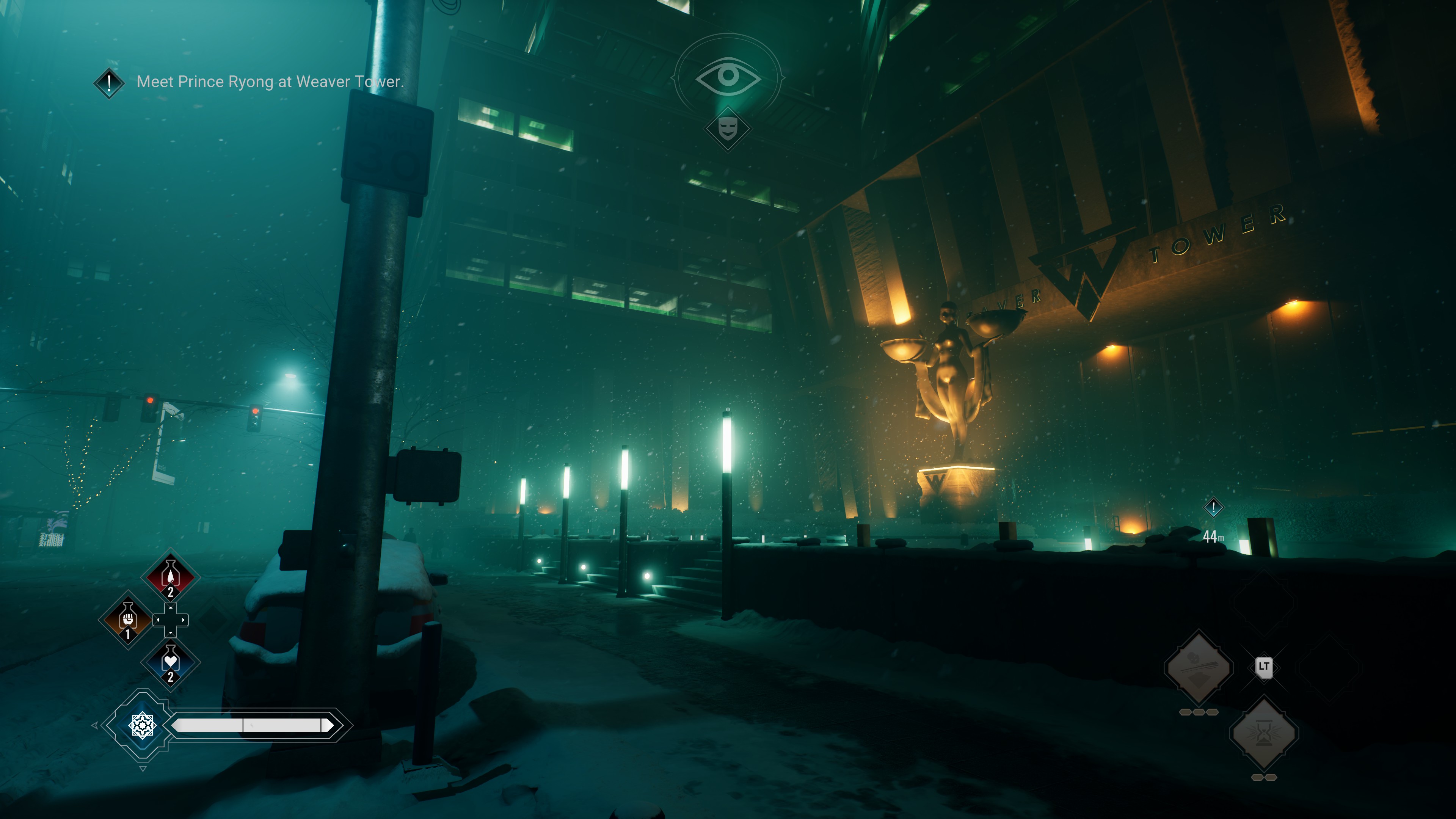
Now, The Chinese Room has done a good job justifying this. You're an elder vampire who's lived for 400 years, and the events of Bloodlines 2 take place over just a handful of nights. It might be weird if you got smarter suddenly, you can already smash most locks, and how's someone who's been asleep since 1920 going to figure out hacking?
But I still miss the flexibility and sense of character building that these features normally provide, and while Bloodlines 2 works without them, it does make it feel like less of an RPG, less like I'm creating my own bespoke version of Phyre. And it's a shame I won't be able to play again as, say, a better investigator, or someone able to strike fear into the hearts of everyone around them just with a quiet word—something the Lasombra clan can actually do, but only during fights.
Pulp fiction
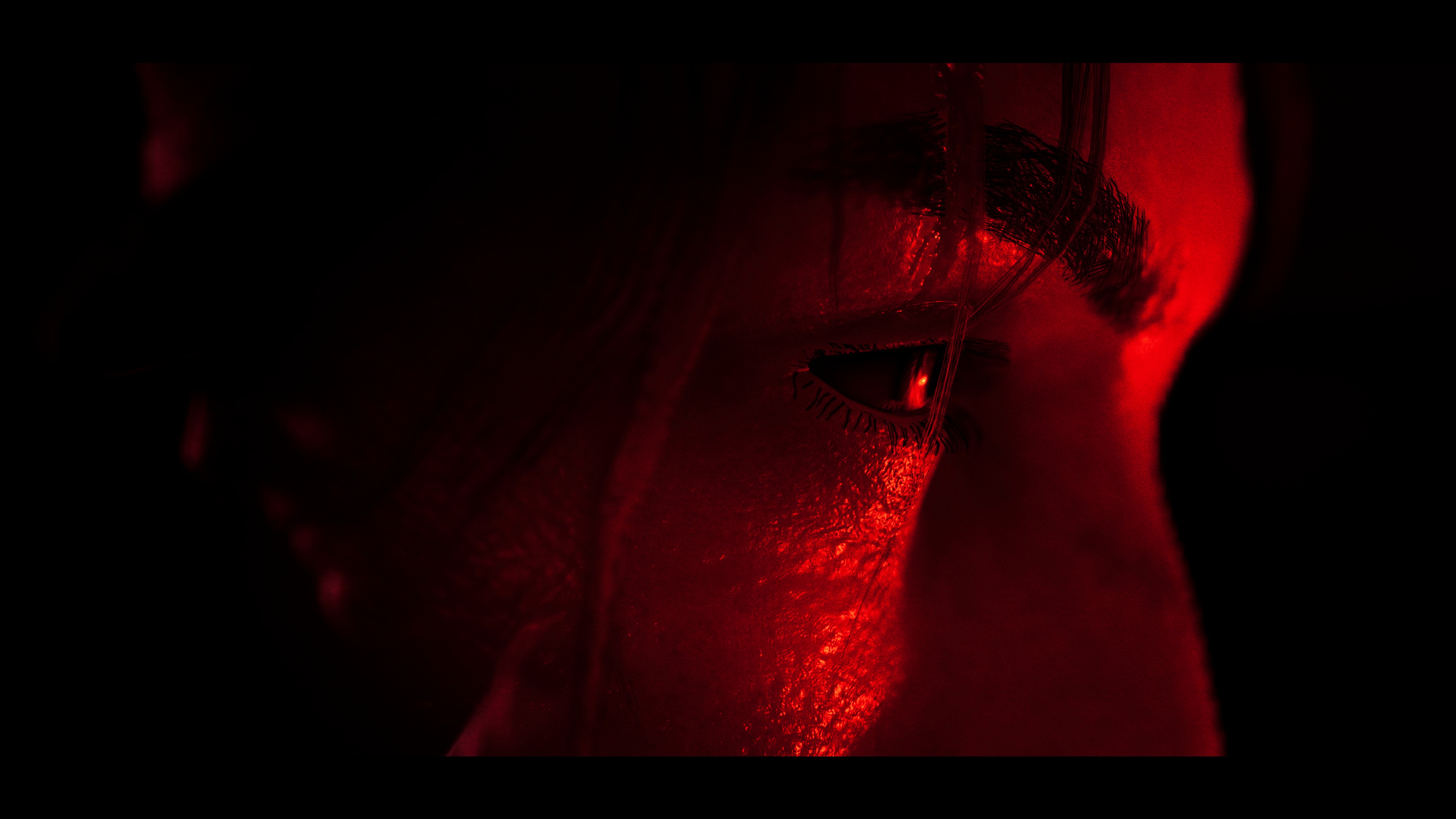
There is an exception to this, however, and his name is Fabien. See, when Phyre goes to sleep, Fabien's memories bubble to the surface. He's forgotten whole chunks of his unlife, but as Phyre hides from the rising sun, these lost moments return, and you can play through them.
In the dream sequences, Fabien jumps between 1920 and 2024, just before Phyre's arrival. In both time periods, he's investigating a serial killer who's been hunting ghouls and vampires, decapitating them and hammering rebar into their bodies. We learn a lot about the court during these sections, and his investigation is unsurprisingly tied to what's going on in the current day.
What makes the dreams so great, though, is that they are completely devoid of combat and totally invested in sleuthing. And since Fabien is a Malkavian, he gets unique insights into objects and some mind-control powers, which you absolutely can use on your conversational sparring partners.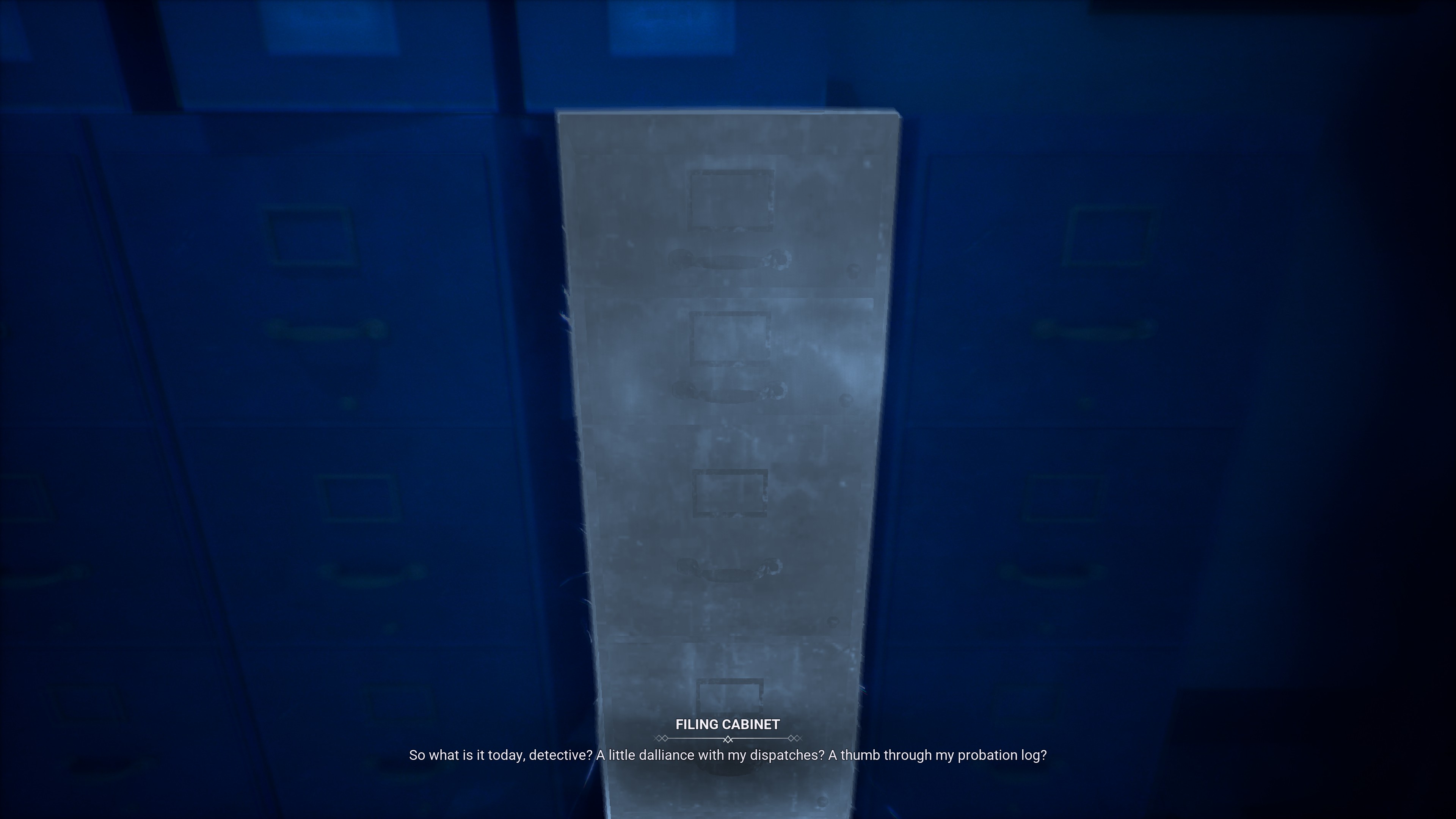
Bloodlines 2 is linear throughout, and you can only use Fabien's Malkavian powers at specific moments on specific people, so you're really being led through these sequences, but boy are they fun. My favourite power is the one that lets him read objects. See, the incredible insights Malkavians glean come with a cost: madness. In Fabien's case, it's poor impulse control, bad jokes, occasional befuddlement, and talking to inanimate objects.
You'll chat to a fancy death threat, a flirty filing cabinet and an unhelpful dead cat.
So when you try to get a read on an item, Fabien strikes up a conversation with it, bestowing the item with a voice and a personality. And Fabien does all the voices himself. You'll chat to a fancy death threat, a flirty filing cabinet and an unhelpful dead cat, to name but a few.
I'm a big fan of my version of Phyre, and I liked being a deadly hunter of naughty vamps, ghouls and occasionally humans, but I think I'd give it all up to play a version of Bloodlines 2 that was just Fabien running around solving crimes and not once killing anyone. And I get the feeling that The Chinese Room would have liked to make that game, too.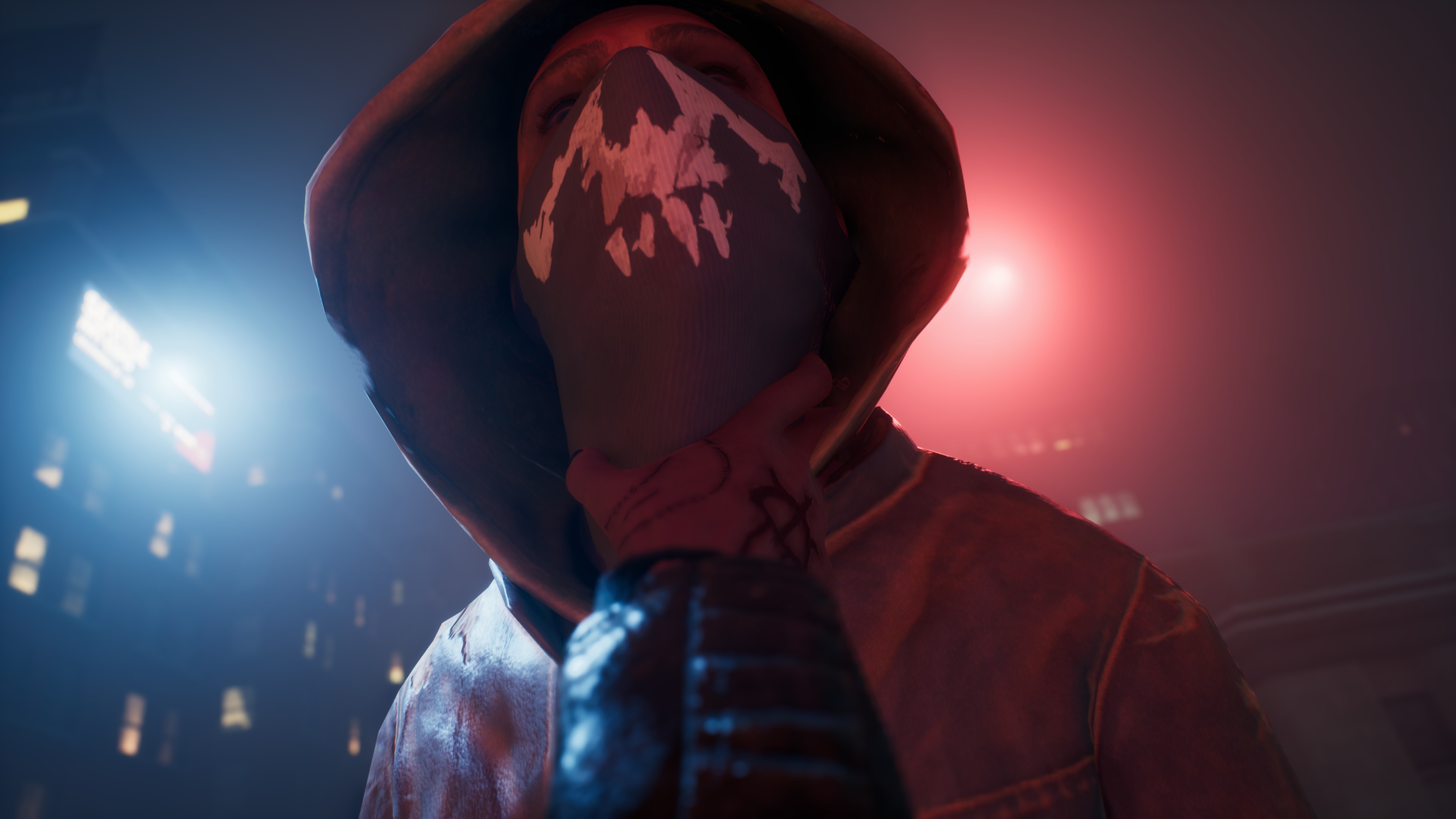
To be clear, Bloodlines 2's combat is good. It just doesn't feel essential. It's certainly better than its predecessor's. Though I think, once again, some of the RPG elements will be missed. There are no stats to worry about, no gear or inventory management, no weapons. You're a 400-year-old killing machine who can decapitate multiple enemies with just your hand. And throughout the game, you'll unlock a wide variety of exotic powers, but you'll also probably figure out a build that works for you early on, and there's not much need to evolve it.
After the first few hours, I'd unlocked all of the Banu Haqim powers, and really that's all you need. With all your clan powers remembered, you have a full loadout. Instead of getting more powerful, you make lateral moves into the skillsets of other clans. But you're always restricted to four active powers. You can become more flexible, and by unlocking the perks associated with each clan you get some extra advantages, but for the most part you reach your full potential close to the start of the game.
This means the combat does start to outstay its welcome. I was having a great time mixing Banu Haqim and Tremere powers, transforming me into a stealthy blood mage who could turn enemies in blood bombs and then turn invisible to go for a series of stealth kills. The infinite access to telekinesis that you get right from the start never stops being handy, either, letting you pick up everything from guns—which you can mentally hold in the air and then shoot—to random bits of detritus. But by hour 20 I was using my stealth to skip any fights that I could.
Stay skippy
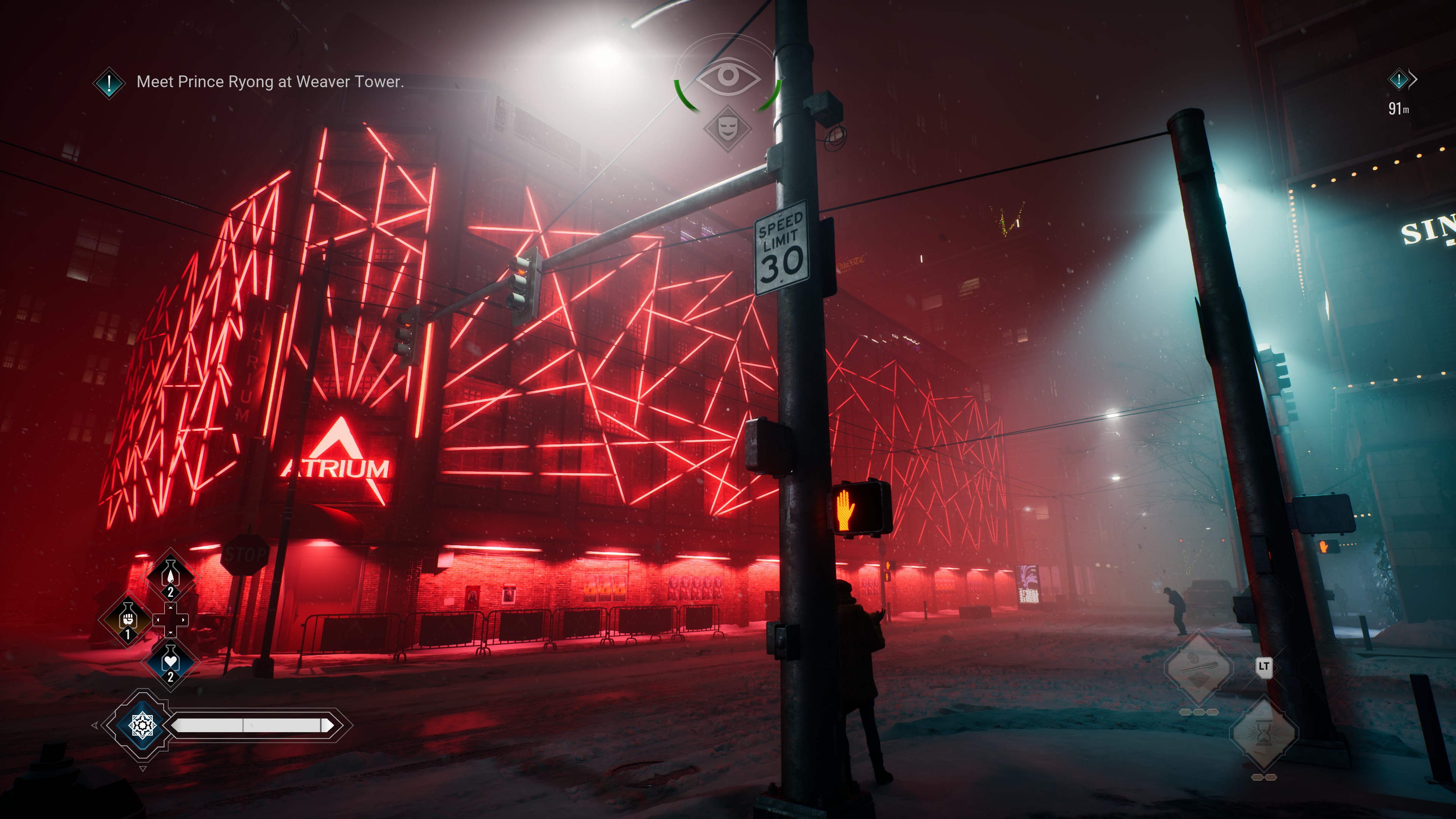
Whether I was fighting hunters, with their grenades and teamwork, or a pack of weapon-wielding ghouls (which make up the bulk of Bloodlines 2's enemies), the strategy I'd figured out early on just kept working. The versatility of the vampire powers, and your incredible mobility, gives encounters a strong Dishonored vibe, but the level design and specific challenges The Chinese Room sets up never comes close to reaching the heights of Arkane's masterpiece.
The versatility of the vampire powers, and your incredible mobility, gives encounters a strong Dishonored vibe.
This is also why I eventually stopped doing sidequests, since a fight is the best you can hope for. Honestly, it's wild that a narrative-driven RPG could have such dreadful diversions. Sidequests are doled out by the leaders of the city's various clans, and here's everything they task you with doing: running to a random area to pick up a package, killing a human, killing a ghoul or finding collectibles. That's it!
I had to go through the same busywork every single night. Barely any story or context, just a mindless job. And since there's no gear system, all you get is XP (which you'll get in abundance from the main quest) and blood resonance, which you'll spend to unlock powers from different clans. You can also just feed on civilians to get blood resonance, and while it's in smaller amounts, it means these sidequests feel even more meaningless.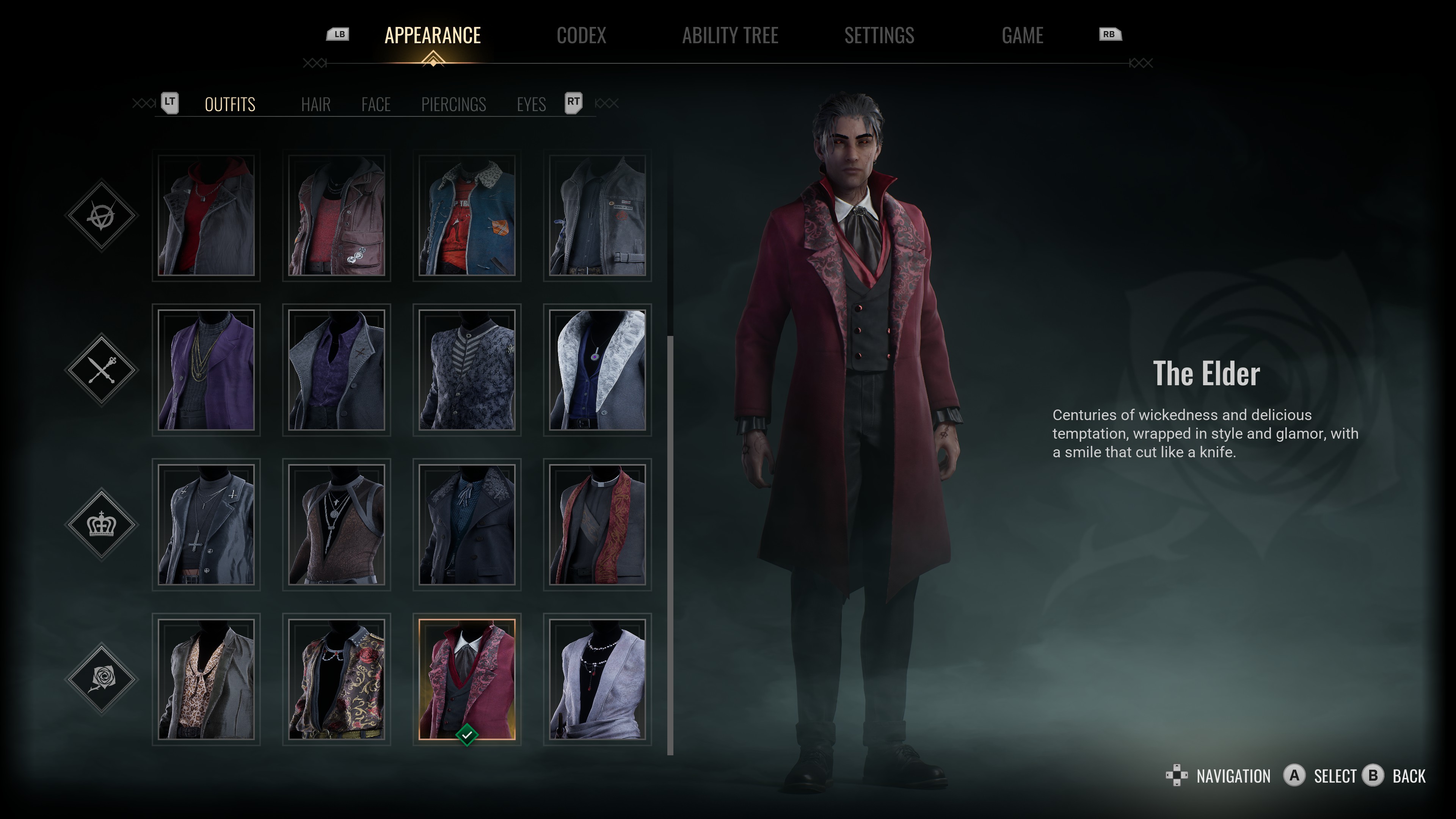
Two thirds of the way through the game, I'd unlocked every clan power, every clan outfit and had a loadout that had been working for me for 20 hours. So I started skipping the side stuff. As a completionist, this is not normal for me, but I hate having my time wasted.
It just seems like The Chinese Room felt it had to include sidequests, so it threw a series of incredibly low-effort ones into the mix. The same goes for the open world. Nighttime Seattle is dense in atmosphere and at times incredibly striking, but there's hardly anything to do in the city. I almost feel bad for complaining about open world bloat now, because if this is the alternative? Well, no thanks.
Anything not related to the main quest is simply not great. And that's a significant problem in an RPG—even one as brisk as this. And while the main quest has much to recommend it, it's not quite exceptional enough to completely make up for the poor quality of Bloodlines 2's meagre side activities. The writing elevates the critical path, but there isn't anything that will stick in my mind like Bloodlines 1's terrifying Ocean House Hotel or Death Mask Productions.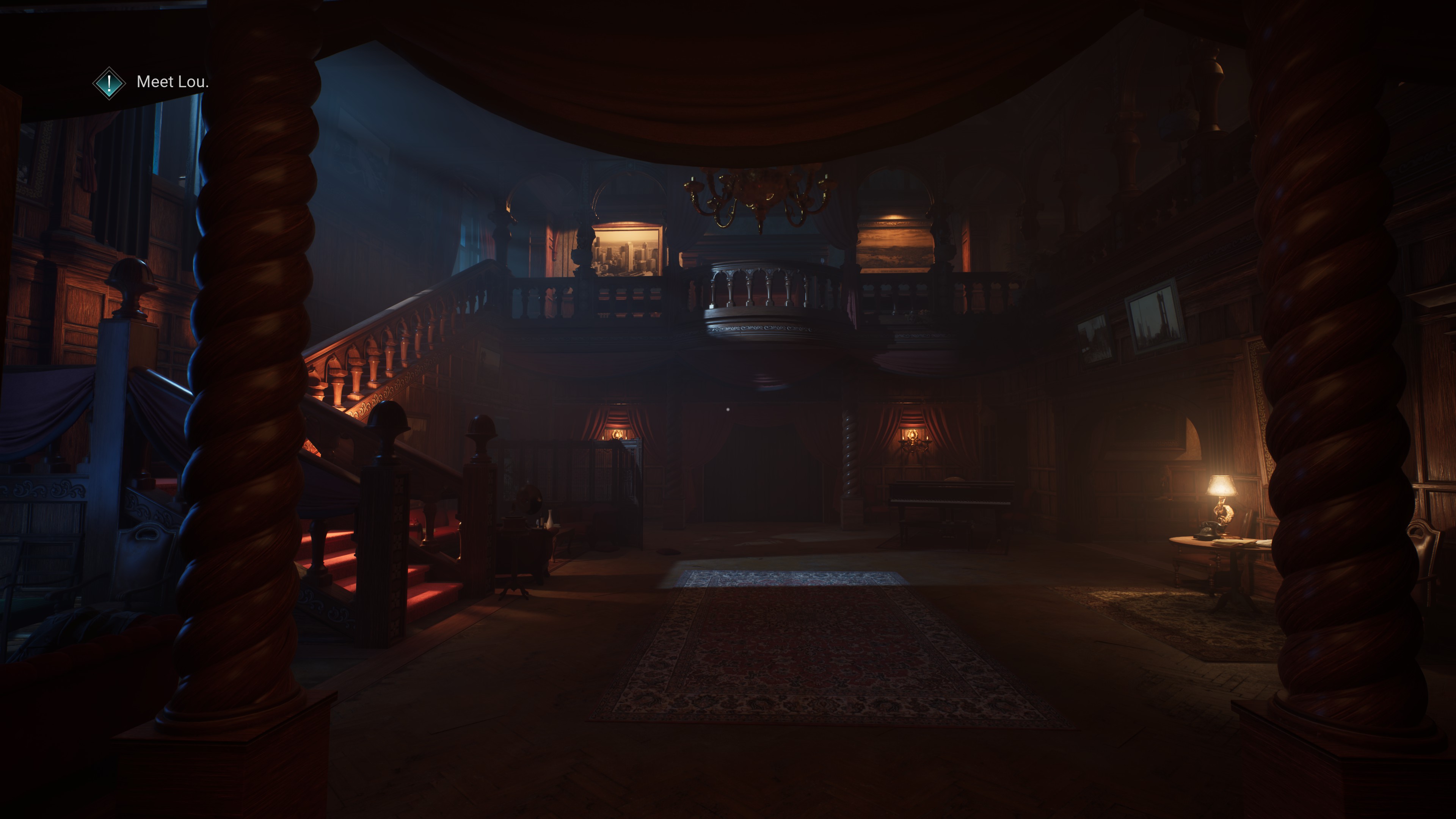
Bloodlines 2 features the best Vampire: The Masquerade story out of any of the videogame adaptations. It's a corker. And I probably will play through it again, even if the changes likely won't be all that dramatic. But the quest design and the character progression really hold it back.
This is a game that's been designed to be a narrative adventure game with a pulpy noir bent—not an RPG. This identity crisis means that it's always just a bit awkward, with The Chinese Room trying to fit a square peg into a round hole. But it's still a miracle that, after one of the most tumultuous creation stories I've ever encountered in game development, it even exists. Let alone that it's good.
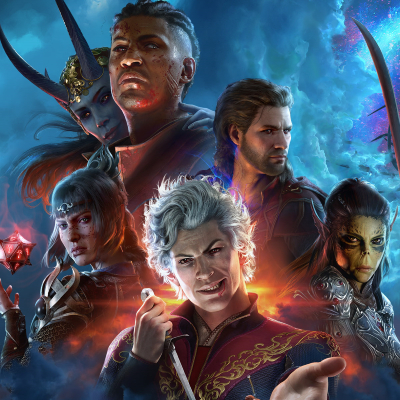
2025 games: This year's upcoming releases
Best PC games: Our all-time favorites
Free PC games: Freebie fest
Best FPS games: Finest gunplay
Best RPGs: Grand adventures
Best co-op games: Better together
What's Your Reaction?
 Like
0
Like
0
 Dislike
0
Dislike
0
 Love
0
Love
0
 Funny
0
Funny
0
 Angry
0
Angry
0
 Sad
0
Sad
0
 Wow
0
Wow
0

